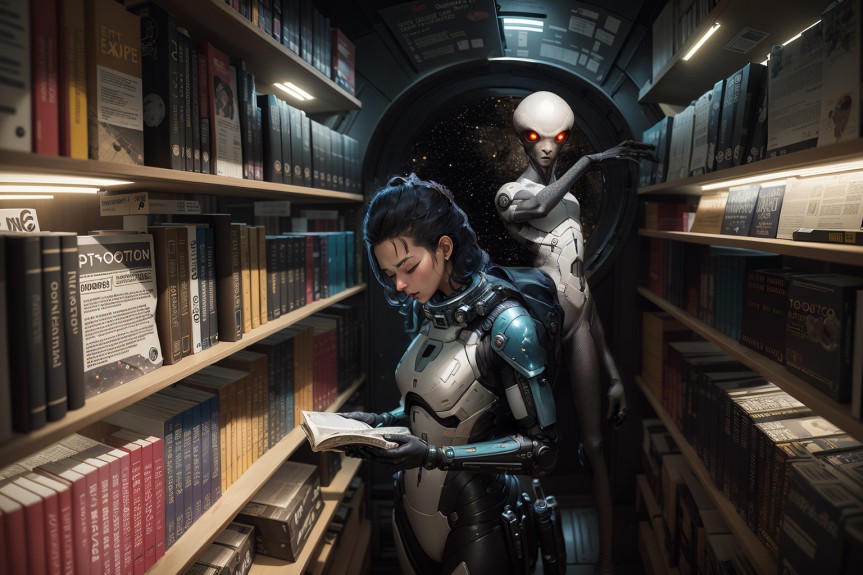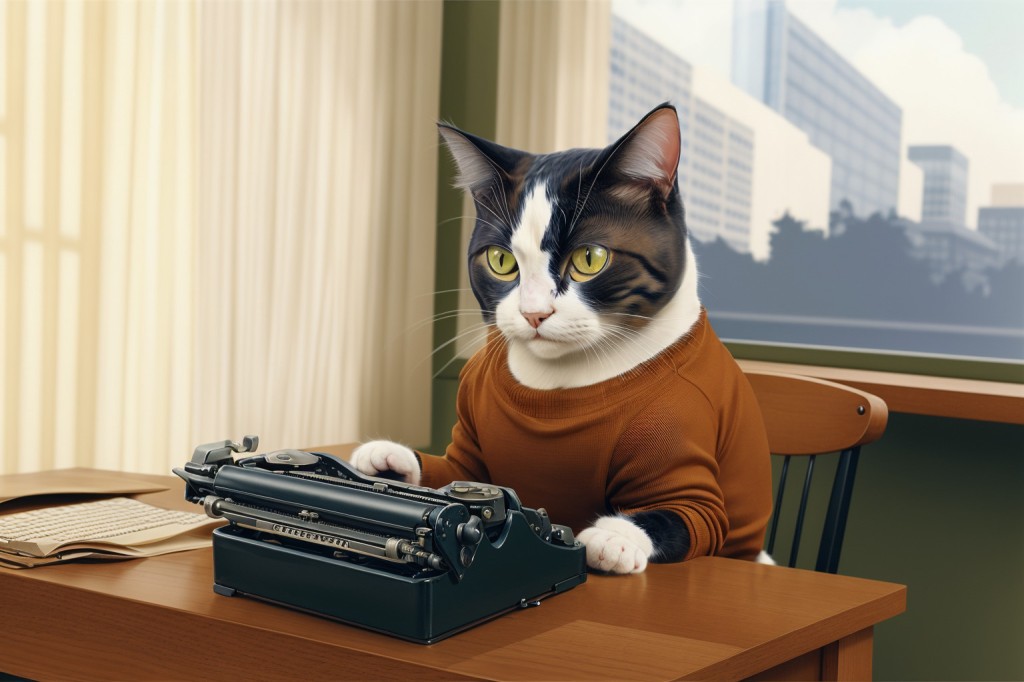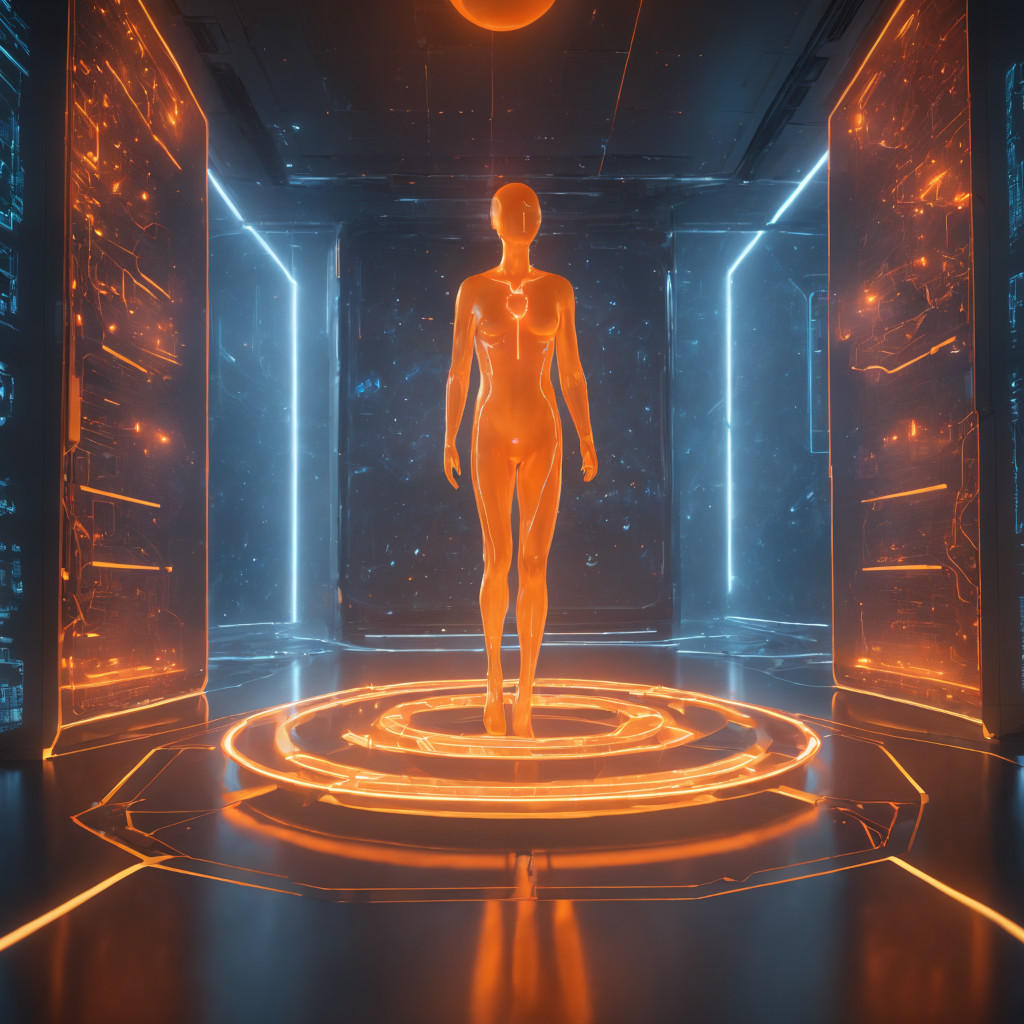
I’m very happy to announce the launch of a new open educational resource (OER) that I’ve been working on for awhile!
It’s called Yet Another Science Fiction Textbook (YASFT). It’s over 60,000 words and includes additional resources that can be helpful for readers, students, and instructors.
YASFT is released under an Attribution-NonCommercial-ShareAlike 4.0 International Creative Commons License. It’s freely available to be read as it is. However, if anyone would like to use it in another way, there are licensing terms that must be followed: “This license requires that reusers give credit to the creator. It allows reusers to distribute, remix, adapt, and build upon the material in any medium or format, for noncommercial purposes only. If others modify or adapt the material, they must license the modified material under identical terms.”
You can find YASFT under the Teaching menu above or directly here.
Its abstract and table of contents are included below.
Abstract
Yet Another Science Fiction Textbook (YASFT) is an open educational resource or OER, meaning it is freely available for anyone to use and learn with. It provides a chronological history of Science Fiction (SF) with an emphasis on literature and film, and it includes other useful resources, such as a glossary of terms, an extensive list of SF definitions, additional resources, a syllabus with hyperlinked readings available online, and video lectures. It tells a story, but not the only story, about SF history. It’s also an experiment in using generative artificial intelligence (AI) to assist with editing a large body of text, in this case over 60,000 words.Table of Contents
Front Matter
What is YASFT?
Who made YASFT?
Why was YASFT made?
Why is it called YASFT?
How can YASFT be used?
How was YASFT made?
Acknowledgements
Preface
Origins of Science Fiction
Early Fantastic Stories
Scientific Revolution
Age of Enlightenment
Romanticism
The Gothic
Mary Shelley’s Frankenstein
Science-Saturated Novel
Victor Frankenstein’s Hubris
Critique of the Age of Enlightenment
Tabula Rasa
Proto-SF
Historical Context
Edgar Allan Poe
Nathaniel Hawthorne
Jules Verne
H. G. Wells
E. M. Forster
Pulp SF
Historical Context
Overview of Pulp SF
Hugo Gernsback
E. E. “Doc” Smith
C. L. Moore
Edgar Rice Burroughs
H. P. Lovecraft
SF Film Serials of the 1930s and 1940s
Buck Rogers
Flash Gordon
Golden Age SF
Historical Context
Overview of Golden Age SF
John W. Campbell, Jr.
Isaac Asimov
Ray Bradbury
Robert A. Heinlein
Frank Herbert
Tom Godwin
SF Film Through the 1950s
Film vs. Literature
Early SF Film
1950s SF Film Boom
Forbidden Planet
New Wave SF
Historical Context
Overview of New Wave SF
J.G. Ballard
Harlan Ellison
Philip K. Dick
Samuel R. Delany
Star Trek
“The City on the Edge of Forever”
Feminist SF
Historical Context
Beginnings of Feminist SF
Definitions of Feminist SF
Joanna Russ
Marge Piercy
Pamela Zoline
James Tiptree, Jr.
Ursula K. Le Guin
Octavia E. Butler
Afrofuturism
Steven Barnes
Tananarive Due
Nalo Hopkinson
Nnedi Okorafor
Cyberpunk
Historical Context
Coining the Cyberpunk Term
Cyberpunk Characteristics
William Gibson
Sprawl Trilogy and Stories
Hermes 2000 and Floppy Disk eBooks
The X-Files, “Kill Switch”
Bruce Sterling
Pat Cadigan
Contemporary Science Fiction
Historical Context
Ted Chiang
N. K. Jemisin
Cory Doctorow
Charlie Jane Anders
Martha Wells
Mary Robinette Kowal
Ken Liu
R. F. Kuang
SF Film from 1960 Onward
1960s
1970s
1980s
1990s
2000s
2010s
Global Perspective: Taiwanese SF
Brief Taiwanese History
Taiwanese SF Overview
Taiwanese Fandom
Cultural Comparisons
Issues with Translation
How to Keep Up With Science Fiction
Appendices
Appendix 1: Glossary of Science Fiction Terms
Appendix 2: Chronological List of SF Definitions of Science Fiction with MLA Citations
Appendix 3: Further Reading
Textbooks
Readers
Teaching
Online Research
Appendix 4: Sample Syllabus with Hyperlinked Readings
Appendix 5: Lecture Videos
Appendix 6: Version History



